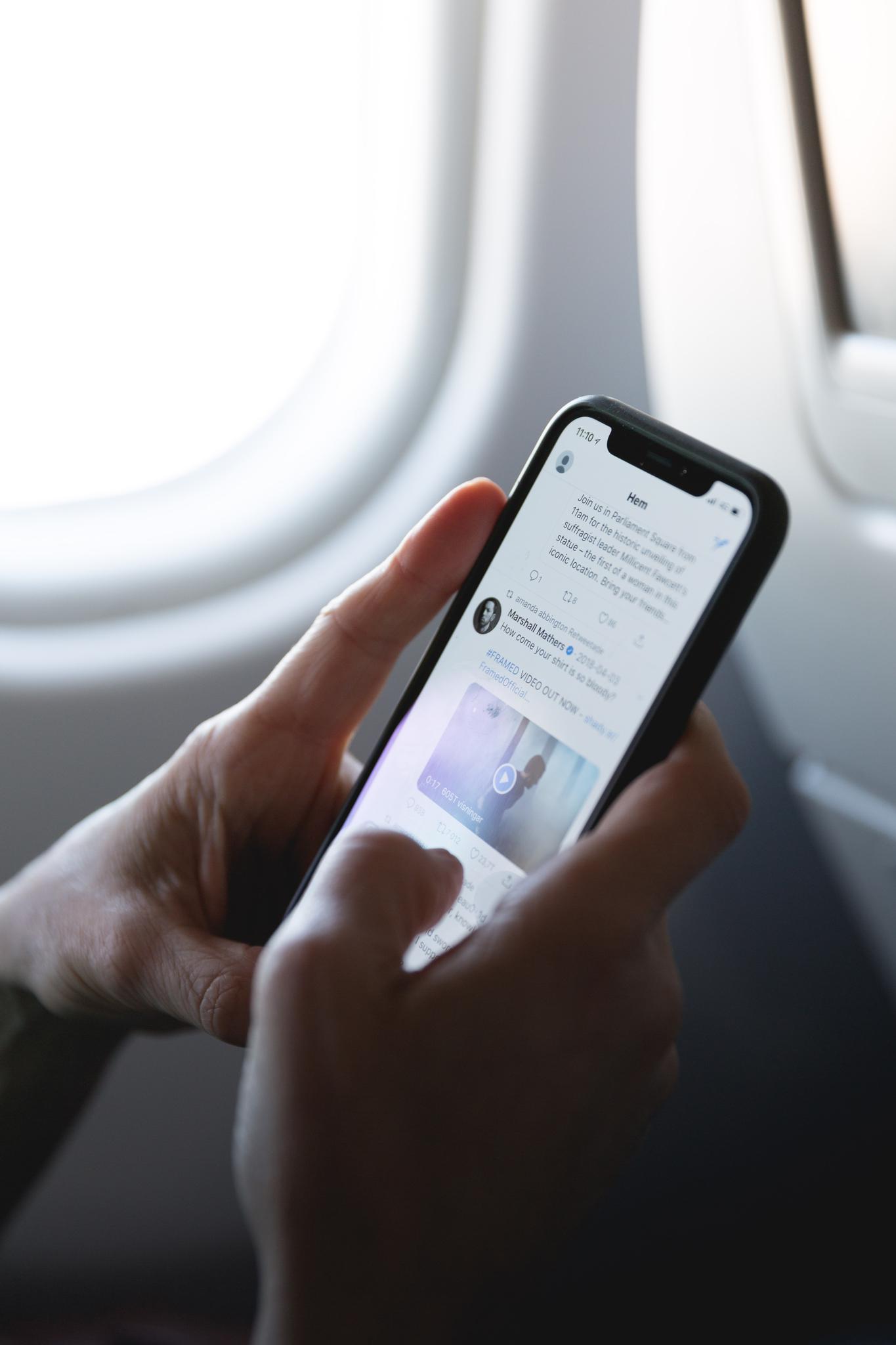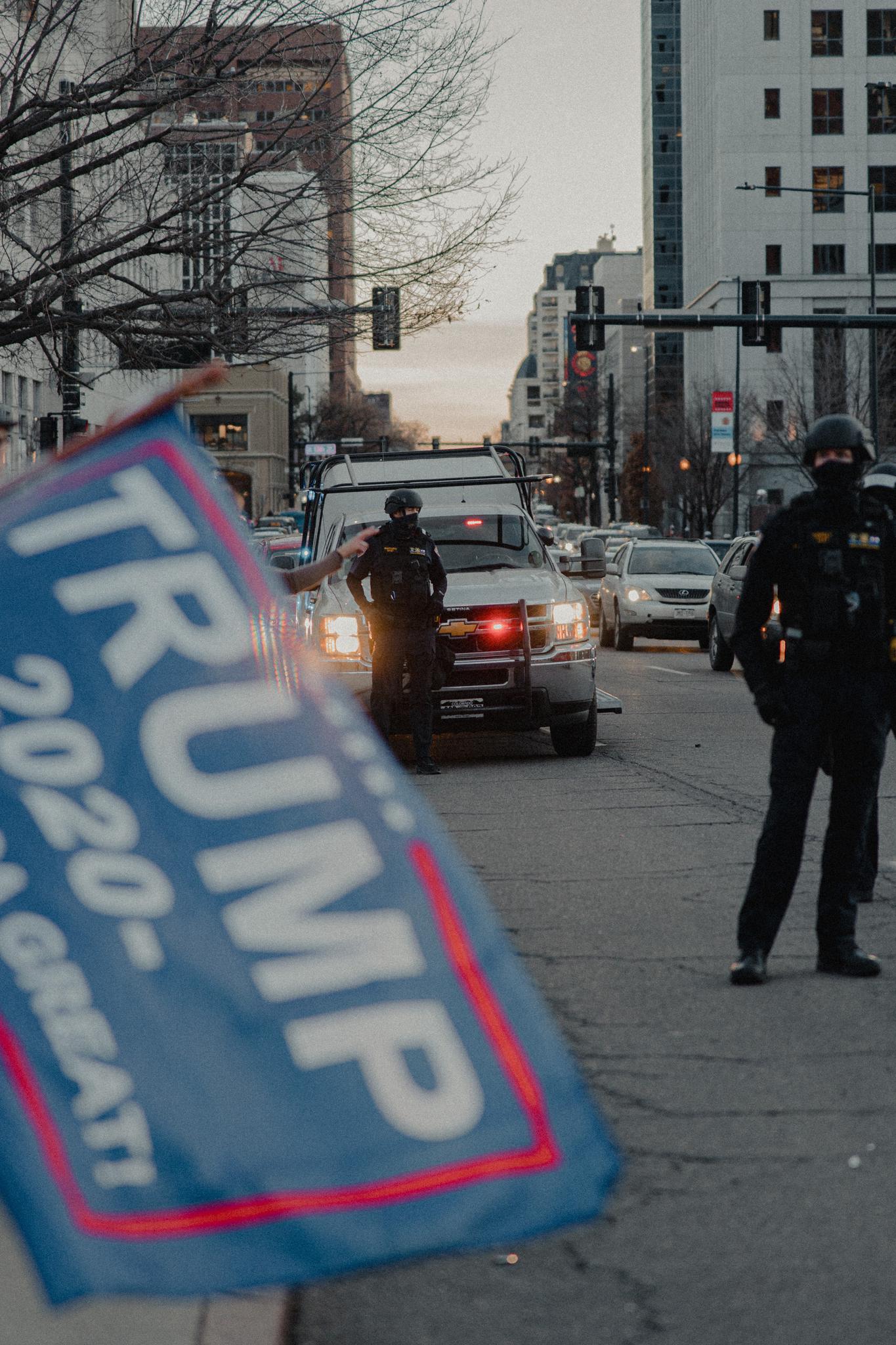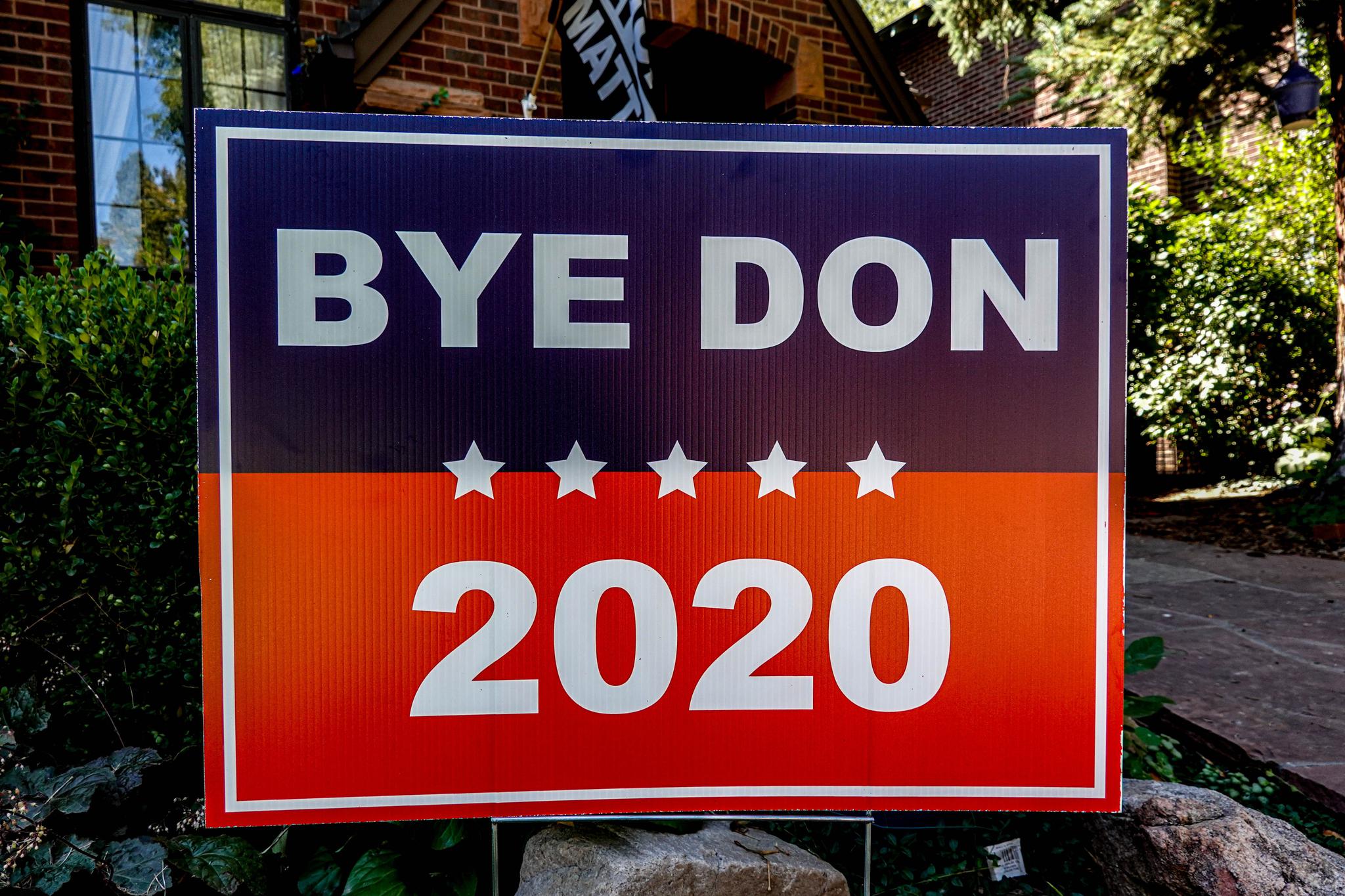We Banned Him From Twitter... What Could Possibly Go Wrong?
I, personally, would like nothing more than to never have to hear Donald Trump open his mouth again. To take this a step further, reading his Tweets gives me actual headaches.
However, all personal sentiment aside, understanding the serious implications of banning President Trump from Twitter (even if it is the end of his term) is essential to combat the rise of right-wing terrorism in America.
At first, hearing Donald Trump was being banned from Twitter and restricted from a variety of social media sites spurred a cacophony of reactions ranging from comedic to outrageous to relief. However, if this is truly going to be the future, it may not be the sustainable solution we may believe it to be. In fact, it may have some serious negative effects.
How Will Trump Now Reach His Base?

Donald Trump will always reach his base. Firstly, he still has access to mainstream forms of communication including television and newspaper. The key part here is that those forms of communication are the most used by older Americans. In fact, 35% of Americans aged 65+ tune into cable news daily in comparison to only 15% of those 18-29. This demographic can be directly compared to Donald Trump's base which does, in fact (and unsurprisingly), skew older according to exit polls. By appealing to his base primarily via the form of communication they subscribe to already, Trump entrenches his ability to feed information and propaganda directly to his base.
The only barrier to this is the difference in the modes. Social media allowed Trump to remain strategically unfiltered. Up until his recent restrictions, there was very little corporate policing of what he said. However, by going through cable news and traditional newspapers, Donald Trump may be filtered by executives and journalists following a code of ethics.
However, it is no secret that some media outlets skew more in favor of Trump than others. Due to this, following his presidency, Trump will have the ability to partner with networks and newspapers which speak directly to his base and thus inculcate his propaganda directly into their lives. To take this a step further, Trump still has access to the airwaves of radio.
Historically, conservative outrage radio has played a major role in amplifying and unifying the voices of far-right groups. It is my fear that Trump will be able to re-incite this mode of communication in a stealthy way. In Irony and Outrage, The Polarized Landscape of Rage, Fear, and Laughter in the United States, Dannagal Young explains "Most of these radio shows peaked in popularity in the mid-to-late 1960s, both in terms of the number of syndicates carrying them and the number of listeners tuning in. Yet, for most Americans, conservative radio remained unknown-- even during the time of peak popularity." All this is to say, while outrage radio played a major historical role, it often went under the radar. The fear in the modern context would be for this to happen again, but this time as a mode for amplifying the modern alt-right, fueling them with outrage, and becoming an avenue for Trump's propaganda. All of this would happen right under the noses of the unexpecting general public. In fact, in 2017 the Breitbart News (a historically conservative media outlet) began expanding their radio influence.
To take this a step further, talk radio is consumed in higher volumes by those aged 50-64, which yet again aligns with Trump's older base. However, not all of Trump's base is older and I would be amiss to ignore the alt-right community in younger generations, which is brewing quietly beneath the surface. This age demographic uses social media at an astonishing rate. In fact, 90% of those ages 18-29 report using social media. For ages 30-49, that rate is 82%. To take this a step further, research from the Pew Research Center, suggests younger audiences rely on the Internet (including social media) for their news consumption at a significantly high rate. About 50% of those ages 18-49 use the Internet to get their news often.
Can Donald Trump Still Reach His Base on Social Media?

Absolutely... and maybe in a much more dangerous way.
Despite being restricted from many platforms of social media, there is still a major avenue he can use. It turns out there's a movement to create platforms specifically meant to foster conversations and connections amongst conservative-minded individuals. Evidence of this is in the app and website "Parler", which labels itself as a free speech network. Parler's main appeal is that it will not "deplatform" you for your views, despite how fringe. Thus, it has become a breeding ground for alt-right ideology.
The good news is most major app-hosting companies are already restricting the app or removing it from their app stores, threatening to put the app out of business. However, that does not change the reality that conservative and alt-right individuals are still going to find a new way to connect, brew dangerous ideologies, and spread propaganda no matter what restrictions are put on them in a way that is unable to really go check by the government due to the First Amendment and freedom of speech. This is the sort of thing that Trump can and will take advantage of. Using Parler or any other platform that may eventually arise, he has the ability to speak directly to his base, out of the eye of mainstream social media just like what happened with conservative talk radio in the 1960s.
A basic principle of economics and business is that if there is a need, a supply will be created to fill that need and void in the market. In this case, if there is a demand for an online, conservative-exclusive forum, someone will fill this niche even if Parler is "taken down". The fear here is the incitation of violence that we saw in DC may continue to happen, but now under-the-radar and more difficult to see coming. In fact, by allowing this base to navigate to separate platforms, the general public will likely underestimate them, which is what the alt-right relies on. In fact, this group already believes themselves to be a "silent majority" since their power and resources are so often discounted. Pushing this base and Donald Trump himself onto separate platforms not only causes them to become more outraged but allows them to covertly coalition build and eventually incite more terror.
In fact, the power of near-separate social media platforms has already been used by the left. Many may recall the way that Gen Z activists used TikTok to orchestrate a "prank" on Donald Trump's rally by reserving tickets that they never intended to use and thus embarrassing Trump with low turnout. TikTok users were able to do this nearly undetected by Trump's team because most people seeing this call to action were left-leaning Gen Z users (thanks to TikTok's incredibly specific algorithm that kept the videos from reaching the conservative users of that app too often) and due to the way it is so easy to underestimate a niche group online. While the impact of this "prank" was not anything life-changing, it arguably resulted in Trump's crusade to attempt to ban the app and did have major political implications including at least a slight impact on the election. However, this incident is mentioned because it is only the beginning of what is possible and illustrates how if teenagers on TikTok can do this under-the-radar, trained alt-right and conservative political communications experts can do much larger, worse, and more violent things with a platform like Parler.
This under-the-radar tactic or phenomena actually has a theoretical name that experts have already flagged as a major concern: echo chambers.

Creating an Echo Chamber May Make This Social Media Restriction Highly Beneficial for Trump
Echo chambers have been tricky subjects for many to articulate and build off of. To better understand what an echo chamber is, generally, political scientists have come to understand it as a phenomenon that occurs when individuals choose to only intake and output media that is partial to their political bias. In “Political Discourse on Social Media: Echo Chambers, Gatekeepers, and the Price of Bipartisanship”, the authors explain that “Echo chambers [are] situations where one is exposed only to opinions that agree with their own”. To expand on this idea, Christian Steglich in "Why echo chambers form and network interventions fail: Selection outpaces influence in dynamic networks" provides a more comprehensive definition, and inserts the concept of online versus real-world examples by writing that “echo chamber stands shorthand for a (potentially online) community of like-minded individuals who almost exclusively interact with one another and are otherwise sheltered from information and from others that could challenge their beliefs.
Typically when experts discuss echo chambers, they cite concern of creating a divided public through political polarization. While this is an issue, I would like to offer the perspective that thorugh Trump's inability to reach certain social media platforms and the clearly divided mainstream media, we can expect to see quite literally two different streams of news. My fear is that in the long term, media and news will no longer just exhibit bias, but completely provide different sets of facts and talk about almost different realities.
We have already seen this happening when Trump calls obvious facts "fake news" or when individuals begin citing Facebook memes as facts, despite having no basis. Bias is one thing and has been present in media since the dawn of literature and reporting. However, completely using a different set of facts to draw conclusions creates real concerns that become undecipherable to the general public. We have also already begun to see echo chambers easily form on social media platforms since the algorithms used by these companies are meant to show you posts that you would enjoy (and thus agree with when it comes to your political leanings). Plus, users are able to actively block out those offering different political views through features such as blocking or muting.
Restricting Donald Trump from forms of social media will also push his supporters off the platform as they are likely to cling to a desire to exist in an online space with their "leader". Utilizing Parler or whatever form of alt-right social media may arise, Trump will be able to set up to present his own set of facts or propaganda without being challenged by left-wing individuals or political opponents and thus eliminating critical discourse (which is intrinsic of a healthy democracy).
Taking this a step further, Trump can also do the same when it comes to partnering exclusively with right-wing news networks, newspapers, and talk-radios. Having two completely different streams of news will be detrimental and dangerous. I fear that it will lead to the incitement of more violence and become a threat to modern American democracy.
Restricting Trump from mainstream social media will not stop him from reaching his base. It will not stop the propaganda from spreading. It may be a momentary block (which with days left in his presidency feels like a breath of fresh air), but he has sworn that this is not the end. "To all of my wonderful supporters, I know you're disappointed, but I also want you to know that our incredible journey has only just begun," Trump says.
If this is not the end, then we must be wary of Trump's use of media in the future as he has proven to be a master manipulator and an expert in taking advantage of both mainstream and social media to fuel his rise to power.
Twitter and other platforms have a social responsibility to ensure their platform is not used to incite violence and have a right to enact their Terms of Service. In fact, I admire these companies' bravery and wish they would have done something sooner. However, that does not mean we should overlook the major drawbacks of this tactic and the long-term implications it has. I do not believe this will stop Trump's awakening of the alt-right it just means he will utilize new (and possibly more dangerous) tactics to reach them.
I sense danger on the horizon and we must all proceed with caution.
